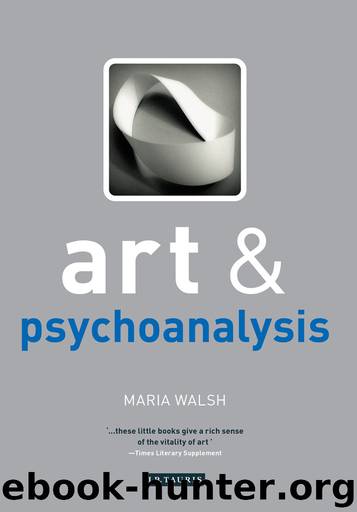Art and Psychoanalysis by Maria Walsh

Author:Maria Walsh [Walsh, Maria]
Language: eng
Format: epub
Publisher: I.B.Tauris & Co Ltd
16. Mike Kelley, Arena #7 (Bears), 1990.
Art allows us to perform the expulsion of the abject almost as a ritual catharsis. On one level, artist Paul McCarthy could be seen as indulging in the worst of infantile perversions. Performances such as Grand Pop, 1977, are replete with his signature ingredients of tomato ketchup, mayonnaise and brown sauce and the enactment of humiliating scenes of bullying and rambunctious behaviour, mainly by McCarthy on himself and on the props that he uses. In Bossy Burger, 1992, his ketchup splattered cook’s uniform and the surrounding wreckage of a mock cookery lesson for baby-doll soup parodies the wholesome vision of food on TV cookery shows. McCarthy has stated that his performances act out the underbelly of capitalist consumer desire, its fallout so to speak. In his performances and videos, bodies are gone awry, fluids leak everywhere and objects disintegrate, nowhere more so than in the film he collaborated on with Mike Kelley in 1992, where they dismantled the innocence of Joanna Spryi’s children’s story Heidi. The artists, Kelley playing Heidi, McCarthy her grandfather, attack the sculptural stand-ins for the other characters with an over-emphasis on the dummies’ orifices and secretions using homemade fluids and liquid matter. The film, which is more like documentation of a puppet show gone severely wrong, is just over an hour long, and its relentless repetition challenges our endurance and indulgence in the artists’ rambunctious antics.
The focus of Kelley’s, McCarthy’s and Gober’s use of abjection questions the ideal bodies that inhabit dominant cultural forms and structures such as art, abject art being heralded as a reaction to the consumerist ethos of Neo-Geo art. In their work, the abject is probed as a cultural term, not simply reified as bodily essences and substance, as in the work of Smith and Pondick. The scene of abjection could be said to stage a kind of truth of the damaged body and diseased body, a body which is perhaps fetishistically sought after in an era where cosmetic surgery and airbrushing techniques manufacture bodies without blemish or sign of bodily excess such as fat, hair and wrinkles. Whether the assertion of a damaged body is enough in itself to counter the cultural impetus towards perfection is questionable. Kristeva says that we are no longer protected from the abject by paternal law, therefore it manifests itself everywhere. Indeed one could even see the perfected bodies of surgery and advertising themselves as somewhat abject in the sense that, in their striving for perfection, these bodies become somewhat monstrous and thereby threaten normalised boundaries. For example, fashion models are distorted to look sick or alien-like, and surgery can generate botched Frankenstein-like features. Kristeva sees art having a cathartic role to play in the proliferation of abject chaos. ‘In a world in which the Other has collapsed, the aesthetic task [...] amounts to retracing the fragile limits of the speaking being, closest to its dawn, to the bottomless “primacy” constituted by primal repression.’9 The contradiction here is that in plumbing these abject depths, the artist still has to shape them.
Download
This site does not store any files on its server. We only index and link to content provided by other sites. Please contact the content providers to delete copyright contents if any and email us, we'll remove relevant links or contents immediately.
Ways of Seeing by John Berger(1324)
Rembrandt Drawings by Rembrandt(1148)
The Perfumes The A-Z Guide by Luca Turin(1127)
The Hare with Amber Eyes by Edmund de Waal(1110)
It's Never Too Late to Begin Again by Julia Cameron(1026)
On Photography by Walter Benjamin(960)
Natasha's Dance by Orlando Figes(921)
A Month in Siena by Hisham Matar(892)
Why Architecture Matters by Paul Goldberger(852)
The Selected Poetry of Rainer Maria Rilke by Rainer Maria Rilke(850)
Minor Feelings by Cathy Park Hong(845)
0062259628 by Sarah Strohmeyer(842)
The Sound of Paper by Julia Cameron(828)
The Death of the Artist by William Deresiewicz(828)
0544325265 by Brendan Jones(817)
Citizen: An American Lyric by Claudia Rankine(803)
Proust Was a Neuroscientist by Jonah Lehrer(792)
Perfumes the Guide 2018 by Luca Turin(783)
And Our Faces, My Heart, Brief As Photos by John Berger(742)
